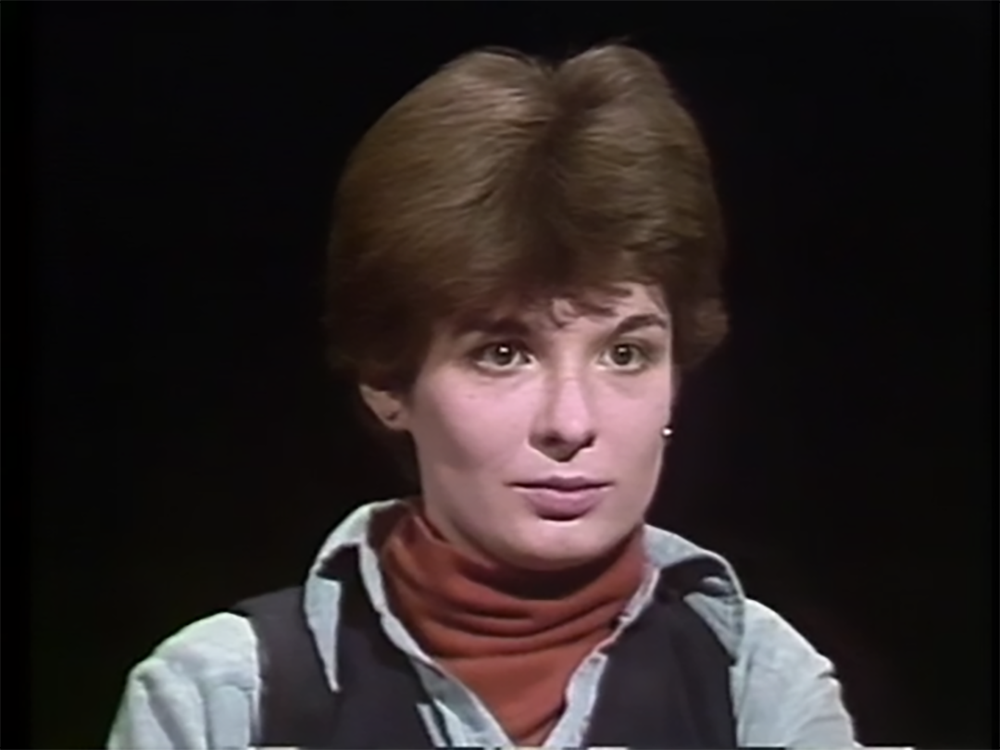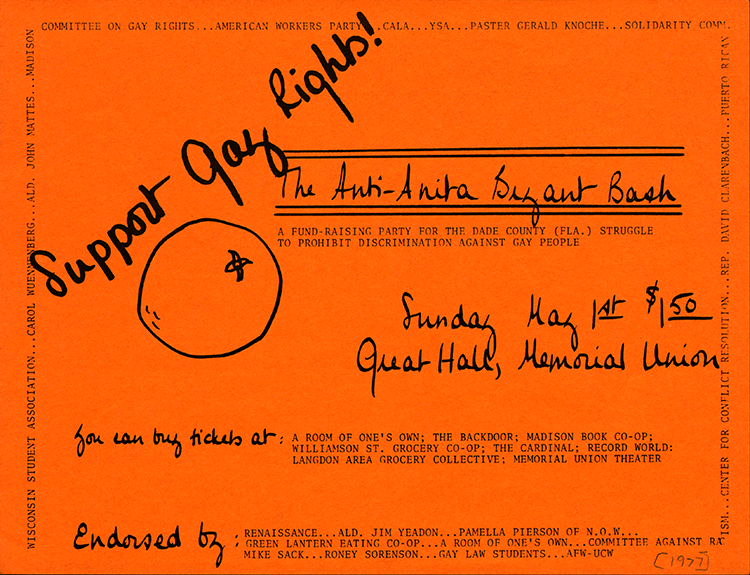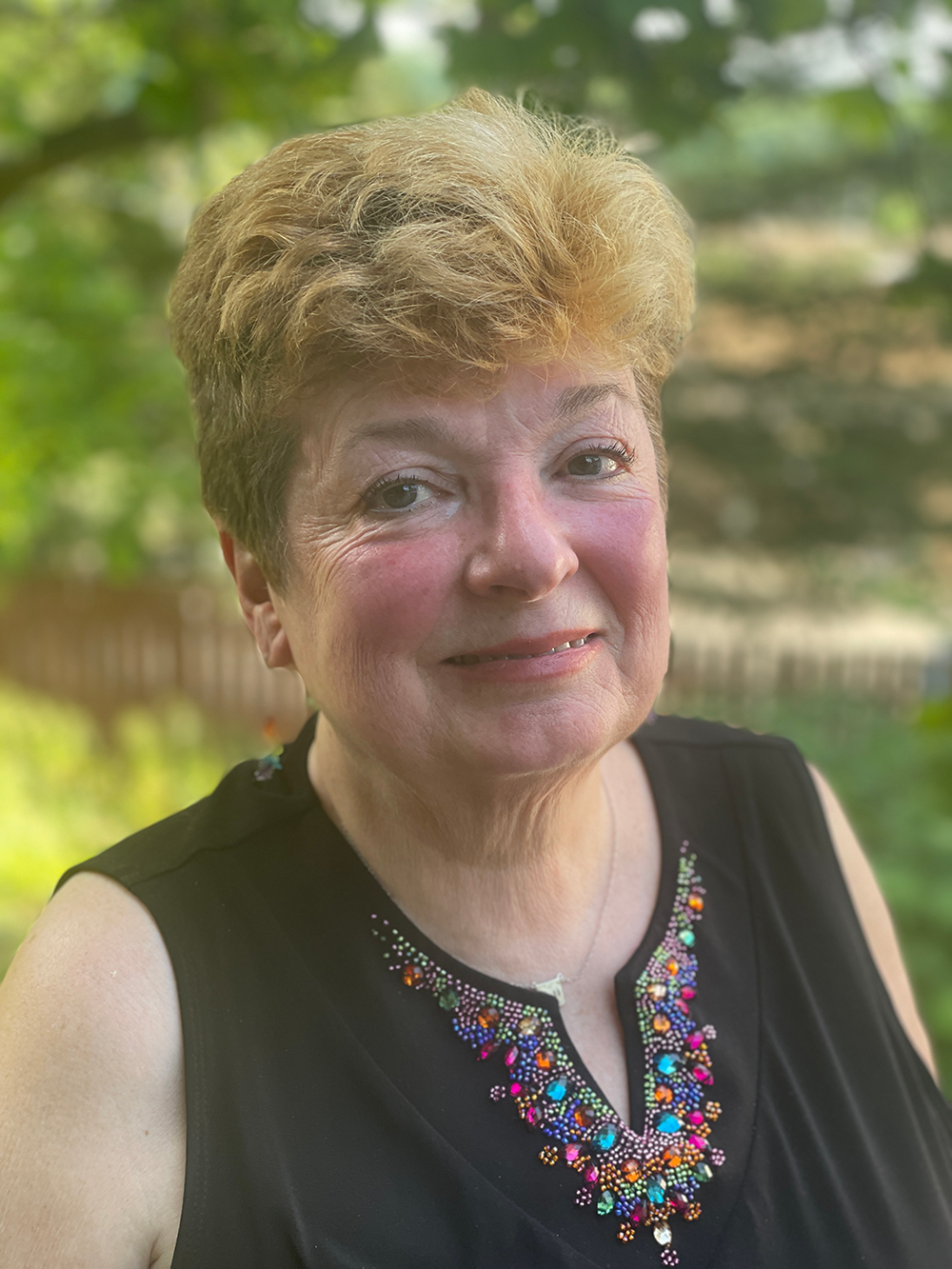Innovative 1970s PBS Program Provided Rare Gay Perspective
A program produced by and for LGBTQ+ people for Wisconsin Public Television in 1977 as part of an experimental community invitation gave voice to gay Wisconsinites.
Try Out TV was both the title and the invitation offered by Madison public television station WHA, now PBS Wisconsin. Beginning in the 1970s, community members could propose and produce, with professional assistance, broadcast television programs.
“They were so supportive because we were such babes in the woods. None of us had a communication arts background,” Kathleen Nichols recalled. Nichols and a small group of out gays and lesbians produced The Gay Response through the Try Out TV initiative in 1977. Nichols came up with the title.
“There were not very many people who were out. Yes, certainly not out to the extent to be interviewed for public television or radio or even newspapers.” Nichols said. “Reporters have their favorites. If they’ve got a contact they like talking to, they talk to them. And there weren’t a lot of other people to talk to,” Nichols said. “‘Well, so-and-so said this. Call Kathleen Nichols to get her response.’” Thus, The Gay Response.

Kathleen Nichols on set of The Gay Response
A favorite reporter of Nichols, Ron McRea, is among a couple of people profiled in the opening of the program. McRea, an out gay newsman, would later become spokesperson for Gov. Tony Earl.
The Gay Response then goes on to be an eclectic mix of history lesson and rap session. Changing religious attitudes toward homosexuality and legal theories are also explored. Viewed today, it is a remarkable picture of a moment in time when society was on the edge of change. Five years later, in 1982, the nation’s first anti- discrimination law protecting gays and lesbians was signed in Wisconsin.
But it was not intended as a historical record, and a conversation with Nichols reveals the time’s current events that prompted the program’s creation. Singer and orange juice spokesperson Anita Bryant had organized a campaign in Miami to rescind the region’s recent gay rights legislation.
“As Dade County rolled back its ordinance, and that began to affect and impact the few other communities that had anti-discrimination provisions, Madison being on a very short list at that time,” said Nichols who had politicked to pass the Madison law.
Try Out TV was not a venue for political programming, but the producers felt that an honest portrayal of gay and lesbian life would have an impact by humanizing homosexuals at a time when most still hid that aspect of themselves.

Nichols felt that prevalent attitudes of the time were “We were perverts that needed to be subject to psychological treatment…A sort of Victorianism was pervasive: ‘Well, women don’t do that.’”
Bravely then, Nichols, McRea and three others participated in a studio conversation, sitting in limbo, brightly lit. Despite the unnatural setting, the discussion has a relaxed feeling. Nichols described it as exactly the kind of conversation the community was having on front porches. “Part of the reason that it stands up fairly well is that it was people telling their own stories,” Nichols remarked after a rewatch.
Nichols believes that the program had the intended effect, helping preserve the Madison anti-discrimination from the Bryant-inspired challenge. It also launched Nichols’ political career.
“I’m sure that the success of The Gay Response and then us beating back the threat to our city ordinance…contributed to Dick Wagner and Dan Curd appearing at my house uninvited to ask me to run for office,” recalled Nichols who would be elected to the Dane County Board of Supervisors in 1982. The next year, she would be appointed co-chair of newly-elected Governor Tony Earl’s Council on and Lesbian and Gay Issue, a position she would hold throughout Earl’s single term.

Kathleen Nichols
Now, as she plans to spend her retirement years living in Ireland, Nichols reflected on the experience of The Gay Response, and it’s not launching her political career that she remembers it for.
“I heard from other people that it gave them the courage to come out to their parents,” Nichols said, “or even their employers.”
“If I have to ever account for what I’ve done here on Earth, living a life that made it possible for other people to come out will be the thing I’ll cite as the reason I should either pass into the eternal consciousness or get through the pearly gates.”
 Passport
Passport






Follow Us